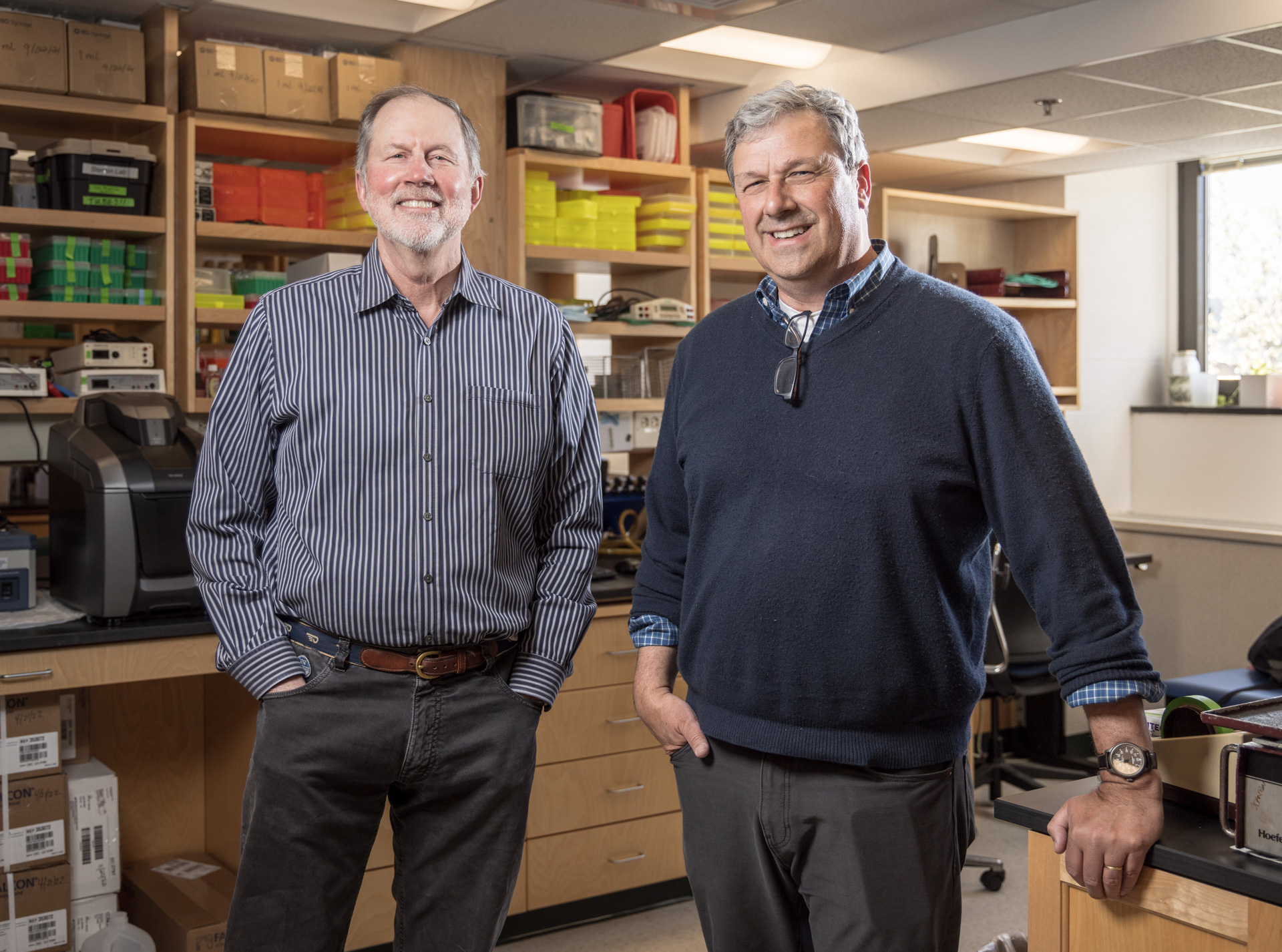
A $1 million gift from John Flatley and his wife, Kate, to a team of investigators at Dartmouth’s Geisel School of Medicine will provide essential funding to develop new and more effective therapies for people with Cystic Fibrosis (CF)—an inherited disorder that causes severe damage to the lungs, digestive system, and other organs in the body.
"We are deeply grateful to John and Kate for this generous gift to support Cystic Fibrosis research here at Geisel," says Duane Compton, PhD, dean of the Geisel School of Medicine. "Philanthropic support is vital to the success of life-saving research programs like our CF Research Center, and this gift will have a tremendous impact on many lives affected by CF."
Despite decades of research and advances in treatment in recent years, CF patients continue to be chronically infected with many bacteria, fungi, and viruses that cause significant lung and gastrointestinal (GI) dysfunction as well as excessive inflammation.
In addition, the complex microbiology of the CF lung and GI tract and the impact of current therapies remain poorly understood. Most research to date has examined a single species of microbes. But the majority of CF patients acquire infections from multiple sources, and very few studies have focused on developing new approaches to eliminate these “polymicrobial” infections.
To treat such infections more effectively, there is a critical need for new drugs and treatment protocols, especially given antibiotic-resistant bacteria and drug-resistant fungi.
“This gift to Dartmouth’s Cystic Fibrosis Research Center will jumpstart the development of new and much needed therapeutics to help patients with CF fight infections,” says Bruce Stanton, PhD, the Andrew C. Vail Professor of Microbiology and Immunology and director of the Lung Biology Center at Geisel. “John Flatley’s vision and generosity will make a difference in the lives of people with CF for generations to come.”
As essential members of Dartmouth’s CF Research Center, the research team studies all aspects of CF pathology and collaborates closely with CF clinicians at Dartmouth Hitchcock Medical Center and Dartmouth Hitchcock Clinics. The Center, one of the most active and productive CF research programs in the country, is supported by a CF Foundation Research Development Program award, an NIH-National Institute of Diabetes and Digestive and Kidney Diseases (NIDDK) program project, and individual NIH-supported projects.
However, since the NIH and the CF Foundation typically expect preliminary evidence before investing in larger initiatives, including the development of therapeutic interventions by academic scientists, the team has sought this key funding from the Flatley Foundation to support their efforts.
"We’re so grateful to John Flatley for his generous support of our work— philanthropy serves as a catalyst for discovery,” says Dean Madden, PhD, principal investigator of the NIDDK CF Research Center at Geisel and vice provost for research at Dartmouth College. “This gift will help our team members generate preliminary data and establish collaborations to unlock large research grants, serving as a force multiplier as we pursue bold ideas for improving the lives of people with CF."
To this end, the research team will utilize complementary skills in microbiology, airway epithelial biology, biochemistry, drug discovery, and protein engineering, focusing on identifying novel therapeutic approaches to combat polymicrobial infections in three main areas—the CF respiratory tract, the GI tract, and inflammation in CF.
"Bruce Stanton and the team at Dartmouth’s Cystic Fibrosis Research Center have played key roles in discovering new medications for CF, making breakthroughs in the battle against CF-related infections, and transforming care for people with CF,” says Flatley. “Patients are leading longer, healthier lives thanks to their work. Kate and I are honored to support them."
Founded in 1797, the Geisel School of Medicine at Dartmouth strives to improve the lives of the communities it serves through excellence in learning, discovery, and healing. The Geisel School of Medicine is renowned for its leadership in medical education, healthcare policy and delivery science, biomedical research, global health, and in creating innovations that improve lives worldwide. As one of America’s leading medical schools, Dartmouth’s Geisel School of Medicine is committed to training new generations of diverse leaders who will help solve our most vexing challenges in healthcare.